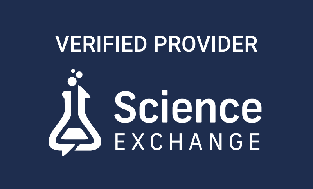The drug development pipeline is increasingly moving towards complex therapies such as monoclonal antibodies and their derivatives, cell and gene therapies and nucleic acid (DNA and RNA) therapies. The critical requirement to support clinical trials and successful commercialization of advanced therapies is high quality consistent manufacturing that is primarily outsourced by pharma to CDMOs (contract development and manufacturing organization). The rapid growth in the complex therapies pipeline has fueled the need for manufacturing capacity at CDMOs that is supported by experienced talent and establishing quality systems. Not surprisingly, the pharmaceutical CDMO market is experiencing high growth with a current marker size of $95B in 2022 that is expected to grow to over $170B in a decade with an estimated 6.2% CAGR1. While estimated market sizes do vary across reports, most reports suggest that the CDMO market is expected to double in the next decade or so.
Historically, drug developers have been primarily based in North America and Europe (NA and EU) who have partnered with CDMOs in the same geographies2. This has largely been due to the interest in building and maintaining a close bond between drug developers and CDMOs. CDMOs in North America and Europe have had access to premier talent pools and manufacturing expertise across multiple advanced modalities. It is estimated that about 37% of CDMOs have comprehensive end-to-end portfolios2, which, helps foster strategic partnerships with drug developers. However, a survey in 2014 revealed an interesting trend that drug developers did not consider geographic location to be a key consideration for selecting a CDMO3 suggesting that the CDMO globalization trend was only a matter of time.
The dominant position of North America and European CDMOs is being challenged by an increasing trend towards globalization especially in Asia. There are a few key reasons for this globalization trend – capacity, supply chain and expertise. Drug developers are increasingly concerned about a “capacity crunch” at NA and EU CDMOs that can delay manufacturing and negatively impact the race to be first to market4. This has led to drug developers towards CDMOs in China and India that have available capacity. Additionally, the COVID-19 pandemic had a significant impact on supply chain availabilities and costs of raw materials and consumables resulting in large price increases and manufacturing delays5. The rush towards manufacturing COVID-19 vaccines and antiviral therapies has helped equip several Asia based CDMOs with the infrastructure and knowhow to manufacture advanced biologics and complex therapies at a high quality.
Specifically, China is experiencing extremely high growth in the CDMO sector at an estimated 32% CAGR6. One of the major reasons that triggered this growth is a legislative change in 2015 where Chinese drug developers did not have to build in-house manufacturing facilities and could use CDMOs to manufacture drugs for approval6. This allowed the CDMO sector to grow rapidly and develop advanced capabilities to manufacture biologics therapies. India is another growing CDMO geography and this is largely being fueled by low costs and the availability of skilled labor6. Other emerging geographies for CDMO outsourcing include Latin America and Africa but these seem to be initially focused on vaccine production.
An interesting trend that is being observed is the shift of Asian CDMOs to North America and Europe. Several savvy CDMOs that were originally based in Asia (primarily China) are recognizing the need to have a presence in drug development hubs in the US and other countries. This shift is helping increase the profiles of CDMOs that originated in Asia but are now global organizations with end-to-end capabilities to support drug development and manufacturing globally. As this trend increases, it is clear that the CDMO world will move towards a virtual global space where physical distances are irrelevant and drug developers will have a broad range of global CDMO partners to accelerate advanced therapies to market.
References:
2https://www.strategyand.pwc.com/de/en/industries/health/2022-global-cdmo-study.html
3https://www.pharmtech.com/view/biomanufacturing-outsourcing-globalization-continues
4https://www.bioprocessonline.com/doc/top-trends-in-biomanufacturing-for-0001
5https://www.bioprocessonline.com/doc/s-bioprocessing-year-in-review-key-takeaways-0001
6https://www.cphi-online.com/emerging-regional-markets-show-promise-as-cdmo-news114072.html


